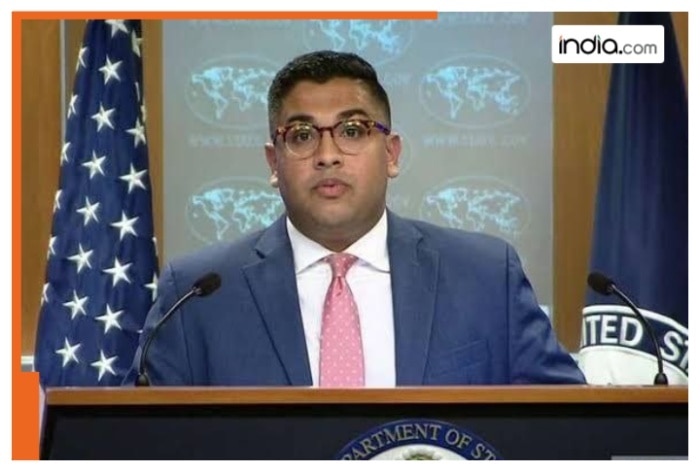 |
|
The recent press briefing involving a Pakistani journalist's query to a US State Department official regarding India's decision to skip the 2025 Champions Trophy in Pakistan has highlighted the complex interplay between sports, politics, and international relations. The incident, which unfolded during a routine press conference, quickly gained traction, underscoring the sensitive nature of the India-Pakistan relationship and the global interest in cricket. The Pakistani journalist directly addressed the absence of the Indian cricket team, emphasizing the significant stature of the Champions Trophy as a major sporting event, second only to the Cricket World Cup. This absence, they highlighted, stems from persistent political tensions between the two nations, resulting in a significant lapse in cricketing exchanges since 2008. The pointed question, therefore, not only addressed the sporting implications but also implicitly critiqued the perceived politicization of sports.
The response from Vedant Patel, the US State Department's Principal Deputy Spokesperson, was carefully calibrated to avoid direct involvement in the India-Pakistan bilateral issue. His initial surprise, expressed humorously with the “bingo card” comment, quickly gave way to a diplomatic response that firmly placed the onus of resolution on the two nations directly involved. This measured approach reflects the established US policy of not interfering in the internal affairs of sovereign states unless specific and compelling international interests are at stake. By stating clearly that the matter was for India and Pakistan to resolve, Patel effectively avoided the potential for unintended diplomatic repercussions. His subsequent emphasis on the broader positive role of sports diplomacy as a force for unity and people-to-people connections served as a subtle, yet powerful, counterpoint to the negativity embedded in the initial question.
The US official's emphasis on sports diplomacy serves as a key takeaway from this incident. His remarks highlighting the current and former Under Secretaries' support for this initiative underscore the US government's strategic approach towards leveraging sports as a tool for fostering international understanding and cooperation. This strategy recognizes the power of sports in transcending political boundaries and creating positive connections between people of different backgrounds. The statement implicitly suggests that while the US remains neutral on the specific India-Pakistan cricket dispute, it remains committed to promoting sports diplomacy as a powerful mechanism for building bridges and fostering positive relationships globally. This approach acknowledges that while politics often dictates short-term interactions, fostering deeper people-to-people connections through initiatives like international sporting events can lay the groundwork for more constructive long-term relationships.
The incident also brings into sharp focus the persistent challenges in fostering normal relations between India and Pakistan. The decision by the Board of Control for Cricket in India (BCCI) not to send the team to Pakistan, citing security concerns, reveals the deep-seated mistrust and political tensions that continue to plague their relationship. The BCCI's request to hold all India's matches in a neutral venue, such as Dubai, underscores the lack of confidence in the security guarantees provided by Pakistan. This situation highlights how seemingly simple sporting events can become entangled in complex geopolitical realities, underscoring the need for sustained efforts towards diplomatic resolution and de-escalation. The incident has far-reaching implications, not just for the future of cricket between these two nations, but also for the broader regional political climate.
Moving forward, the incident serves as a reminder of the importance of separating sports from politics, though the reality is that complete separation is often difficult to achieve. The US approach, while neutral on the India-Pakistan conflict, provides a valuable example of how to engage diplomatically with sensitive geopolitical issues while simultaneously promoting the positive unifying power of sports. It remains to be seen whether the India-Pakistan cricket dispute can be resolved, but the incident at the US State Department press briefing highlighted the complexity of this challenge and the potential for sports diplomacy to play a crucial role in fostering greater understanding and cooperation between nations.
